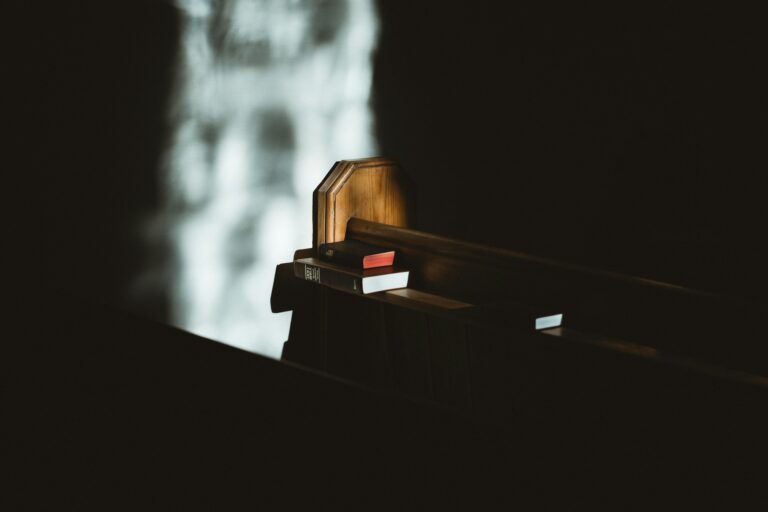For much of the seventeenth century, Richard Greenham (c.1540/45–1594) was reckoned to be among the three or four most important figures of the Elizabethan Church of the late sixteenth century, being especially renowned for his skill as a spiritual guide.[1] In fact, T. D. Bozeman has remarked that Greenham needs to be regarded as “the foremost architect of the first great awakening of [English] Protestant piety.” And yet, as his recent biographer Eric Josef Carlson has noted, “for centuries he has almost vanished from the historical record, thanks to his decision to labor in the relatively obscure rural Cambridgeshire parish of Dry Drayton,” a few miles to the north of Cambridge.
Prior to Greenham’s 1559 matriculation at Pembroke Hall in Cambridge University, we have no accurate knowledge of his birthplace and early years. After nearly a dozen years of study at Cambridge, Greenham spent the bulk of his pastoral career, from 1570 to 1590, in the small parish of St. Peter and St. Paul, Dry Drayton, then a community of about 150 people. Greenham moved to London in 1590 for reasons now unknown. Of his ministry there we know next to nothing, but it seems he came to regret this move. He died in April 1594 of unknown causes.
The Puritan Preacher of Dry Drayton
In a letter to the bishop of Ely, Greenham described his ministry as “preaching Christ crucified unto myself and country people.” Greenham summed up his pastoral ministry as “none other thing, but to preach the word of God sincerely, and purely with a care of the glory of God and a desire of the salvation of our brethren.” And again, Greenham could state: “such horrible disorder is there, where God’s Word is not truly preached.” And again, he could argue, “there is no other means in the world to come unto Christ than by the preaching of the word.”
Deeply concerned to educate his hearers—female illiteracy in the parish was virtually one hundred percent, while male illiteracy was about seventy per cent—and due to the fact that numerous demands on his time gave him little free time, Greenham would rise at four every day to study and prepare his sermons. During the week he preached a sermon on Monday, Tuesday, Wednesday, and Friday just after dawn so that his parishioners might attend before they went to work. After preaching he went back to study in the morning, and then in the afternoon he visited the sick or went out into the fields to speak with his parishioners who were working there. He also preached twice on Sundays, and on Thursday morning he catechized the children of the parish, which he also did each Sunday evening.
According to Henry Holland (d.1603), a London pastor who prepared a posthumous edition of Greenham’s works and wrote a short memoir of the Puritan pastor to accompany this edition, Greenham preached with such energy that “his shirt would usually be as wet with sweating as if it had been drenched in water.” Before he went into the pulpit, though, he often experienced what he came to believe were Satanic attacks, being assailed by “very sharp and trembling fears in the flesh.”
A Counseling Ministry
Though well known and appreciated as a gospel preacher, it was as a pastoral counselor that Greenham excelled. According to Holland, the fame of Greenham’s skill as a spiritual counselor spread far and wide so that many, who “groaned under spiritual afflictions and temptations,” came to see him and “by his knowledge and experience many were restored to joy and comfort.” Thomas Fuller (1608–1661), whose father knew Greenham, similarly said that “his masterpiece was in comforting wounded consciences… God used him herein as an instrument of good to many, who came to him with weeping eyes and went from him with cheerful souls.”
Greenham’s friends came to regard Greenham as “the paradigmatic godly pastor” and hoped he would write a book on the art of spiritual nurture, but he never did. A series of his choice sayings was drawn up, however, after his death. The following examples of these sayings below do indeed reveal Greenham to be a man of true wisdom—the final one is indeed noteworthy for it reveals Greenham’s deep love for the souls of his people.
- “Many are barren in grace because they are barren in prayer.”
- “Where the Scripture hath not a mouth, we ought not to have ears.”
- “There is nothing so pretious, as God’s grace, which changeth the face of heaven and earth; and nothing so vile as sinne, who openeth hell, and staineth the earth, and shutteth up heaven.”
- “It would be a thousand deaths, yea, a thousand hells unto me, to see your souls miscarry.”
Mentoring Pastors
Yet, for all his godliness, insight, evangelical message and hard work, his ministry initially appeared to be virtually fruitless. Others outside his parish were apparently blessed through it, but not, it seems, his own people. A little rhyme that expressed this fact made the rounds among the Puritans: “Greenham had pastures green, but flocks full lean.” And as he himself said to Richard Warfield, who succeeded him as parish minister: “I perceive no good wrought by my ministry on any but one family.”
But like many other ministers of the gospel, Greenham was not a good judge of the real impact of his ministry. In the rural England of Greenham’s day, there was much fallow ground to be broken up. It was a time for sowing; the time for reaping still lay in the future. And through Greenham’s influence on a number of key Puritan ministers of the next generation, men like Arthur Hildersham, Henry Smith, and Richard Rogers whom he personally mentored, it came to pass that thousands of English men and women were, by the 1620s, in some sense the spiritual flock of Richard Greenham.
[1] An earlier version of this article first appeared in Tabletalk in February 2012 and is used here by permission.
















